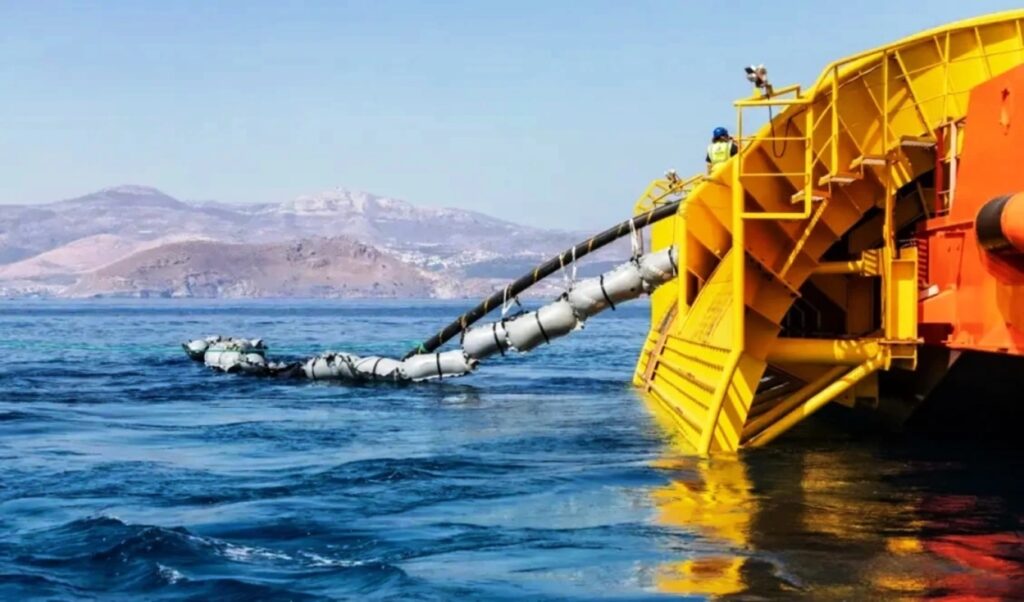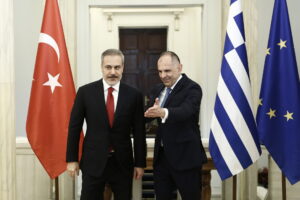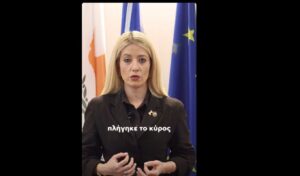Greece’s energy upgrade and strengthening in the region now places the implementation of the electrical interconnection project between Crete and Cyprus on more stable foundations. The issue is expected to occupy the 3rd Intergovernmental Summit of Greece-Cyprus taking place today in Athens and to be raised in the meeting between the Greek Prime Minister and the President of the Republic of Cyprus as part of Kyriakos Mitsotakis’s briefing to Nikos Christodoulidis on the energy agreements signed at the P-TEC Summit.
At the same time, in Brussels, the two Energy Ministers of Greece and Cyprus will meet with European Energy Commissioner Dan Jørgensen, aiming to assess the GSI electrical interconnection project and determine the next stages required for its continuation.
Greece-Cyprus electrical interconnection: Michalis Mathioulakis analyzes the obstacles and next steps on parapolitika.gr
Professor Michalis Mathioulakis (and academic director of the Greek Energy Forum) speaking to parapolitika.gr argues that “the general upgrade of Greece that emerges from this cooperation with the United States and its upgraded role – as a point for starting natural gas imports to Europe – generally strengthens its position in energy matters. With this strengthened position, it creates hopes that the Greek government will decide to proceed a bit more decisively than in the past on the cable issue. The cable currently needs two things. It needs the Cypriot side to understand that it must fulfill its obligations, the financial ones to ADMIE, and the Greek side to proceed with the bathymetric surveys regarding the cable. Last week, on one hand Greece was strengthened, or rather showed that relations with the US and support from the US is strong, and on the other hand the announcements made about the 3+1 scheme, which is Greece-Cyprus-Israel with the US behind, also shows that Cyprus emerges strengthened. So with this logic it creates some hope”.
The presence of the two Energy Ministers in Brussels, where a viable solution will be sought to advance the project, shows, according to Mr. Mathioulakis, that the project can proceed. As he argues “the two sides start from different points of concern. From the Cypriot side, the concern is whether they should start paying some money, while from Greece whether it will make moves that could provoke Turkey’s reaction. That is, from Greece’s side, the hesitation is whether it should enter more dynamically into bathymetric surveys, anticipating Turkey’s reaction, for a project which Cyprus has not yet shown uncompromisingly that it is committed to advancing. This is the game. At this moment we are at a point where both sides are waiting for the other to show written proof that they are absolutely committed to advancing the project. They say it in words, but in actions neither side has proceeded with what the other needs to feel the security it requires”.
From today’s meeting in Brussels, the push that both sides need to proceed to the next steps that will unblock the project may emerge. According to Mr. Mathioulakis, “what the Commissioner must do is find the way for one of the two sides to proceed, so that the other side feels secure to do its share. To pressure the Cypriots to accept starting money payments, so that Greece also moves away from hesitation about whether Cyprus is 100% devoted to the project and thus proceed with bathymetric surveys. To give assurances to Greece to proceed with bathymetric surveys with the European Union politically supporting any reaction from Turkey”.




